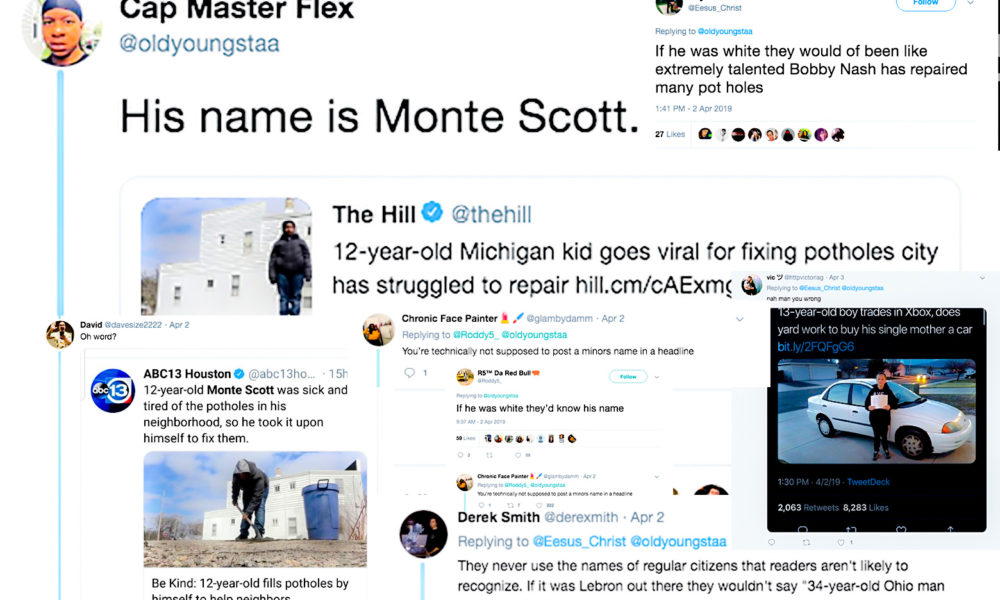Monte Scott.
Unless you’ve read the story that I’m about to dive into, this name probably sounds unfamiliar to you.
On April 1, I was scrolling down my Twitter feed when I noticed a tweet, one of many, that had gone viral for the wrong reason. A user by the name of “Cap Master Flex” retweeted a local news story from The Hill headlined, “12-year-old Michigan kid goes viral fixing potholes.” By adding, “His name is Monte Scott.” to the original tweet, the quoted tweet racked in over 62,000 retweets and 174,000 likes from Twitter users.
The replies to the tweet were filled with dozens of people who also felt that the omission of Scott’s name in the headline was a selfish move by The Hill to discredit him.
Upon clicking on the article, I was not surprised to find that Monte Scott’s name appears clearly in the second sentence.
This complaint has also arisen when a person who has been arrested goes unnamed in a headline, especially when said person becomes an enemy of a community.
In response to an article headlined, “Man arrested for assault on conservative activist at UC Berkeley,” David L Mullins tweeted, “Zachary Greenberg. His name is #ZacharyGreenberg. Don’t hide it, put his name right in the headline.”
A study in 2016 by computer scientists at Columbia University and the French National Institute found that 6 in 10 social media users share news stories based on the headlines without actually reading them.
It is unnecessary for those who don’t read the article to take offense to something that has long been a part of a journalistic writing process and Associated Press style. As a journalist and avid social media user myself, I’ve often become discouraged while coming across angry tweets directed toward news outlets for not naming common people in their headlines.
Ultimately, this hate that stems from the exclusion of most names in headlines is a result of journalistic style — not of systematic oppression or lack of desire by reporters and media outlets.
While it’s a common misconception that journalists are legally unable to include the names of minors in headlines, this is untrue. Rather, there is a style of writing referred to as AP Style, which instructs journalists not to use the name of any obscure individual in a headline. On the other hand, a famous celebrity, such as Kanye West, would be mentioned first and foremost.
Most writers also don’t have a say with the headlines for their own stories. Headlines are a part of a package with the overall design and layout of the publication itself that works in tandem with one goal in mind: to grab the reader’s attention.
Immediately naming someone who isn’t widely known goes against this idea. It doesn’t give the reader any clue as to who the person is or the significance of the article and discourages the audience from reading the remainder of the article.
I won’t ignore that there are still major battles to be had for equal representation in the media and in the world. However, there simply isn’t one here.
Established or credible news outlets will ultimately always choose to describe a common person rather than use their name in the headline since it’s what’s best for both accuracy and attracting attention. It is up to the public to continue to read the article; if and when they do, they will discover the person’s name in the first or second paragraph.
In a world where content creators and social media influencers compete for attention online with clickbait titles and photos, it’s become more important that readers continue past the headline before jumping to conclusions.




